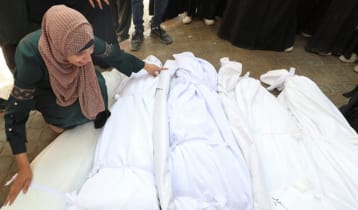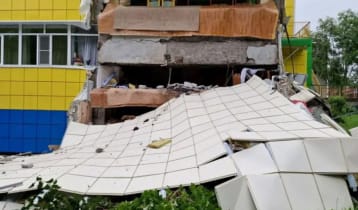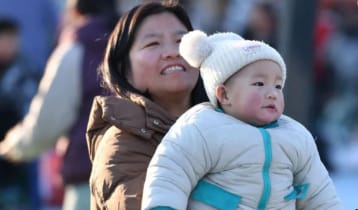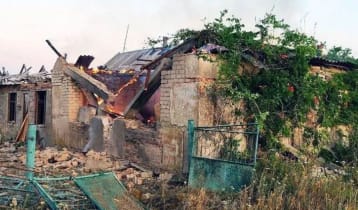Kashmiris allege violent army crackdown
4 || risingbd.com
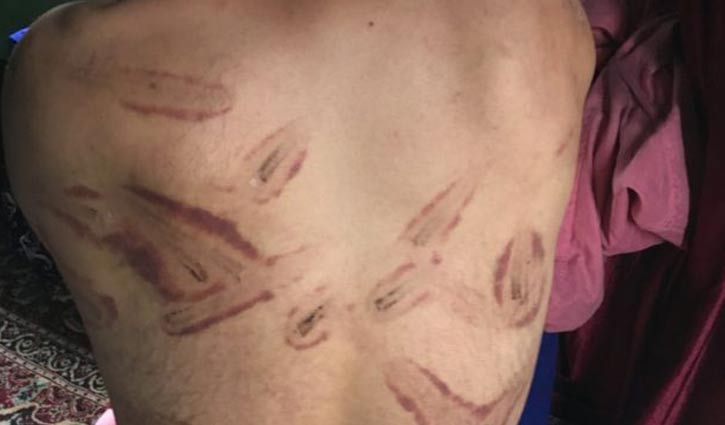
International Desk: Security forces in Indian-administered Kashmir have been accused of carrying out beatings and torture in the wake of the government's decision to strip the region of its autonomy.
The BBC heard from several villagers who said they were beaten with sticks and cables, and given electric shocks.
Residents in several villages showed me injuries. But the BBC was not able to verify the allegations with officials.
The Indian army has called them "baseless and unsubstantiated".
Unprecedented restrictions have put Kashmir into a state of lockdown for more than three weeks and information has only trickled out since 5 August when Article 370 - as the provision giving the region special status is known - was revoked.
Tens of thousands of extra troops have been deployed to the region and about 3,000 people - including political leaders, businesspeople and activists - are reported to have been detained. Many have been moved to prisons outside the state.
The authorities say these actions are pre-emptive and designed to maintain law and order in the region, which was India's only Muslim-majority state but is now being divided into two federally-run territories.
The Indian army has been fighting a separatist insurgency here for over three decades. India blames Pakistan for fomenting violence in the region by supporting militants - a charge that its neighbour, which controls its own part of Kashmir, denies.
Many people across India have welcomed the revocation of Article 370 and have praised Prime Minister Narendra Modi for taking the "bold" decision. The move has also been widely supported by mainstream media.
I visited at least half a dozen villages in the southern districts which have emerged as a hub of anti-India militancy in the past few years. I heard similar accounts from several people in all these villages of night raids, beatings and torture.
Doctors and health officials are unwilling to speak to journalists about any patients regardless of ailments, but the villagers showed me injuries alleged to have been inflicted by security forces.
In one village, residents said that the army went from house to house just hours after India announced the controversial decision that upended a decades-old arrangement between Delhi and Kashmir.
Two brothers alleged that they were woken up and taken to an outside area where nearly a dozen other men from the village had been gathered. Like everyone else we met, they were too afraid of reprisals to reveal their identities.
"They beat us up. We were asking them: 'What have we done? You can ask the villagers if we are lying, if we have done anything wrong?' But they didn't want to hear anything, they didn't say anything, they just kept beating us," one of them said.
"They beat every part of my body. They kicked us, beat us with sticks, gave us electric shocks, beat us with cables. They hit us on the back of the legs. When we fainted they gave us electric shocks to bring us back. When they hit us with sticks and we screamed, they sealed our mouth with mud.
"We told them we are innocent. We asked why they were doing this? But they did not listen to us. I told them don't beat us, just shoot us. I was asking God to take me, because the torture was unbearable."
Another villager, a young man, said the security forces kept asking him to "name the stone-throwers" - referring to the mostly young men and teenage boys who have in the past decade become the face of civilian protests in Kashmir Valley.
He said he told the soldiers he didn't know any, so they ordered him to remove his glasses, clothes and shoes.
"Once I took off my clothes they beat me mercilessly with rods and sticks, for almost two hours. Whenever I fell unconscious, they gave me shocks to revive [me].
"If they do it to me again, I am willing to do anything, I will pick up the gun. I can't bear this every day," he said.
The young man added that the soldiers told him to warn everyone in his village that if anyone participated in any protests against the forces, they would face similar repercussions.
All the men we spoke to in all the villages believe the security forces did this to intimidate the villagers so that they would be too scared to protest.
In a statement to the BBC, the Indian army said it had "not manhandled any civilians as alleged".
"No specific allegations of this nature have been brought to our notice. These allegations are likely to have been motivated by inimical elements," army spokesperson Col Aman Anand said.
Measures had been taken to protect civilians but "there have been no injuries or casualties due to countermeasures undertaken by the army", he added.
We drove through several villages where many residents were sympathetic towards separatist militant groups, whom they described as "freedom fighters".
The UN Commission on Human Rights has also called for setting up a Commission of Inquiry (COI) to conduct a comprehensive independent international investigation into allegations of human rights violations in Kashmir. It has released a 49-page report on alleged excesses by security forces in the region.
India has rejected the allegations and the report.
Source: BBC
risingbd/Aug 30, 2019/Mukul
risingbd.com





